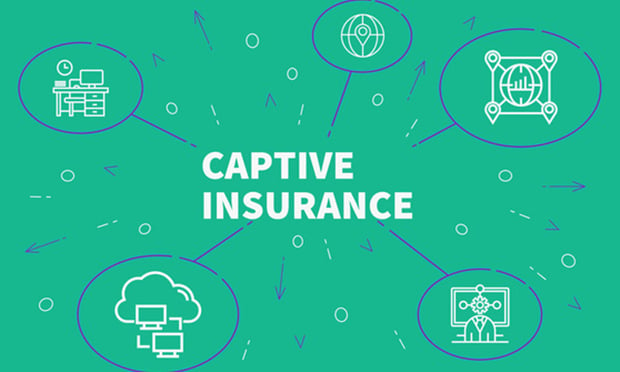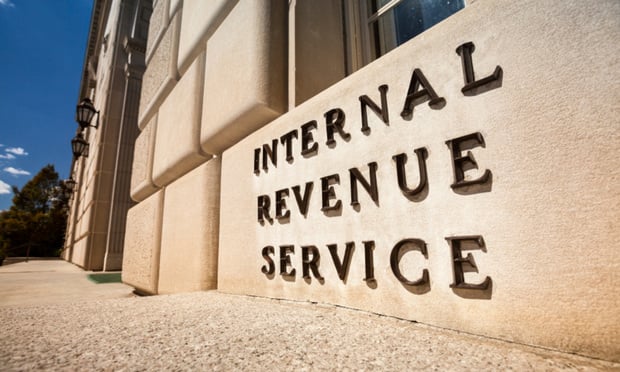 The scope of captive insurance in Florida could besignificantly expanded if captive-specific legislation pending inthe 2011 Florida Legislature is ultimately enacted.Although no licensed Florida captives currently exist, statelaw presently allows for the creation of ”captive insurers” and“industrial insured captive insurance companies.” Both ofthe currently filed bills, HB 1235, sponsored by Rep. Jeanette Nunez, R-Miami, and its identical counterpart,SB1836, introduced by Sen. Miguel Diaz de laPortilla, R-Miami, would change Florida's requirements for bothcurrently authorized captive insurers and create other types ofpermitted captive insurance companies.
The scope of captive insurance in Florida could besignificantly expanded if captive-specific legislation pending inthe 2011 Florida Legislature is ultimately enacted.Although no licensed Florida captives currently exist, statelaw presently allows for the creation of ”captive insurers” and“industrial insured captive insurance companies.” Both ofthe currently filed bills, HB 1235, sponsored by Rep. Jeanette Nunez, R-Miami, and its identical counterpart,SB1836, introduced by Sen. Miguel Diaz de laPortilla, R-Miami, would change Florida's requirements for bothcurrently authorized captive insurers and create other types ofpermitted captive insurance companies. HB 1235 and SB 1836 may spur captive development in Florida as aresult of the lowering of captives' capital and surplusrequirements, as well as the expansion of the types of captivespermitted in Florida, including the creation of a “special purposecaptive insurance company.”
|Generally, a special purpose captive would only insure risks ofits parent, affiliates and certain unaffiliated companies, butcould provide both insurance and reinsurance for other risks asapproved by Florida's insurance commissioner. Importantly, onlyspecial purpose captives would be able to provide personal motorvehicle insurance, homeowners insurance or a component thereof, ifapproved by the commissioner. Organized as astock company, the current permitted captive insurer—designated asa “pure captive insurance company” under the proposedlegislation—would be required to possess and maintain unimpairedpaid-in capital of at least $100,000, along with unimpaired surplusof at least $150,000. Organized as a non-profitcorporation, a pure captive would be required to have unrestrictednet assets of least $250,000. Under current Florida law, a captiveinsurer is required to possess and maintain unimpaired paid-incapital of at least $500,000 and unimpaired surplus of at least$250,000. If organized as a reciprocal, captives, including a purecaptive, would be required to possess and maintain unimpairedsurplus of $1 million, regardless of type.
|Under the proposed law, an industrial insured captive insurancecompany incorporated as a stock insurer or as a limited liabilitycompany would be required to have unimpaired paid-in capital of atleast $200,000 and unimpaired surplus of at least $300,000. As amutual insurer, it would be required to possess and maintainunimpaired surplus of at least $500,000. With theenactment of HB 1235 or SB 1836, capital and/or surplusrequirements for industrial insured captives would dropsignificantly, as indicated by the foregoing, from the currentminimum requirement of $20 million in unimpaired capital andsurplus.
|Employment Opportunities
Although HB 1235 and SB 1836 would not require captive insurers touse captive managers or management companies with Florida offices(as states such as Arizona do), the bills do require captives tohave a principal office in Florida. This would foreseeablyopen the door for the statewide establishment of such captivemanagement offices and companies.
Depending upon how Florida's insurance commissioner mightultimately interpret the legislation, captive management companiesor captive managers could be established in Florida, or existingones could create offices in Florida to serve as principal captiveinsurer offices, even in the absence of a reference to a captivemanagement company or a captive manager within the law. The pending bills could have further positiveeconomic impact in Florida through the costs and fees associatedwith the legislation's various captive- specific requirements, suchas state licensing, maintenance of a principal place of business inFlorida or, in the case of a branch captive, maintenance of thebranch operation's principal place of business inFlorida. The legislation further requires one board ofdirectors meeting, one subscribers' advisory committee meeting orone meeting of the managing board, if a corporation, reciprocal orlimited liability company, respectively, to be held inFlorida. Captives also would have to appoint aFlorida-resident registered agent to accept service of process.
|Licensing and Fees
Under HB 1235 and SB 1836, a captive insurance company would pay anonrefundable $200 license application processing fee to theFlorida Office of Insurance Regulation. In addition, for the reviewof the application information, it would pay either a reasonablefee for the commissioner's retention of external legal, financialand examination services, or a fee of $2,400 for use of thecommissioner's internal resources. Additional fees would include aninitial license fee of $300 and an annual renewal fee of $500.Attendant Florida domestic businesses such as attorneys,accountants and other professionals would benefit if thecommissioner outsourced captive-related legal, financial andexamination services to Florida-domiciled entities.
Florida state banks, Florida branches of Federal Reserve Systemmember banks, and Florida-domiciled asset managers would alsobenefit from the legislation's financial provisions. The proposedbills would require 35 percent of the assets of a Florida-licensedcaptive reinsurance company (as later defined) to be managed by anasset manager domiciled in Florida.
|Except for a sponsored captive that does not assume risk andwhose capital or surplus may include high-quality securitiesapproved by the commissioner, HB 1235 and SB 1836 would require anycaptive's capital and surplus to be in cash, cash equivalents, oran irrevocable letter of credit issued by a Florida chartered bank,a Federal Reserve System member bank with a branch office inFlorida, or as approved by the commissioner. Further, the bills also would create associationcaptive insurance companies, branch captive insurance companies,captive reinsurance companies, and sponsored captive insurancecompanies with protected cells.
|Details and Definitions
An association captive would only insure risks of the association'smember organizations and their affiliated companies. As astock insurer or as a limited liability company, an associationcaptive would have to demonstrate unimpaired paid-in capital of atleast $400,000 and unimpaired surplus of at least $350,000. Anincorporated mutual association captive would be required to havesurplus of at least $750,000.
Branch captives, formed to write insurance business for parentcompanies and affiliates that are licensed under the laws of analien jurisdiction and subject to statutory or regulatory standardsimposed by the alien jurisdiction in a form acceptable to thecommissioner on companies that transact the business of insurancein the alien jurisdiction, could be licensed by the commissioner totransact insurance in Florida through a business unit with aprincipal place of business in Florida. Branch captiveswould be required to securitize payment of liabilities attributableto their branch operation.
| HB 1235 and SB 1836 provide for a captive reinsurancecompany, which is a stock reinsurance company licensed or formedunder the subject law and wholly owned by a qualified reinsurerparent company. A qualified reinsurer parent company isdefined as a reinsurer authorized to write reinsurance in Florida,and which has a consolidated GAAP net worth of at least $500million and a consolidated debt-to-total-capital ratio of .50 orless. The captive reinsurance company would be required to possessand maintain capital or unimpaired surplus of at least $300 millionor 10 percent of its reserves, whichever is greater.  A sponsored captive would be similar to an offshoresegregated account or protected cell company. The minimumcapital and surplus would be provided by one or more sponsors, thesponsored captive would insure the risks of separate specifiedentities and any affiliates (participants), and the losses of theparticipants would be confined to the assets of a protected cell bya contract with the participant. Unless the commissionerapproves otherwise, a participant could only insure its own risksthrough a sponsored captive.
A sponsored captive would be similar to an offshoresegregated account or protected cell company. The minimumcapital and surplus would be provided by one or more sponsors, thesponsored captive would insure the risks of separate specifiedentities and any affiliates (participants), and the losses of theparticipants would be confined to the assets of a protected cell bya contract with the participant. Unless the commissionerapproves otherwise, a participant could only insure its own risksthrough a sponsored captive.
A sponsor must be an insurer licensed pursuant to Florida law,an insurance holding company that controls such insurer and that issubject to the insurance holding company system registration lawsof the insurer's state of domicile, a reinsurer authorized orapproved under the laws of a state, or a captive insurance companyformed or licensed under Florida law. Under HB 1235 and SB1836, risk retention groups could not be sponsors orparticipants.
|The legislation provides that the unimpaired paid-in capital ofa sponsored captive may not be less than $500,000 and itsunimpaired surplus may not be less than $500,000. However, if the sponsored captive does not assume any risks (risksare held by the protected cells), the protected cells insuring therisks are homogenous, and the number of cells are 10 or less, thecommissioner could, but would not be obligated to, reduce theunimpaired paid-in capital to not less than $150,000 and theunimpaired surplus to not less than $150,000. HB 1235 and SB 1836state that business written by a sponsored captive in respect toeach protected cell must be fronted by an insurance companylicensed under certain jurisdictions, reinsured by a reinsurerauthorized or approved by Florida, or secured by a trust fund orother assets acceptable by the commissioner. Ifthis legislation is enacted, Florida will join the ranks of anumber of states that have broader captive insurance laws than itscurrent law. Several states, including Delaware, Vermont, SouthCarolina, Montana, Hawaii, Missouri, and the District of Columbia,actively promote their captive insurance programs and, throughvarious state-based initiatives, have brought economic growth orfinancial benefits to their states. (See The Captive Sevenabove.)
|Whether HB 1235 or SB 1836 will produce economic growth orfinancial benefits to Florida will depend significantly upon itsregulatory and business environment, not merely on a change in thelaw.
Want to continue reading?
Become a Free PropertyCasualty360 Digital Reader
Your access to unlimited PropertyCasualty360 content isn’t changing.
Once you are an ALM digital member, you’ll receive:
- All PropertyCasualty360.com news coverage, best practices, and in-depth analysis.
- Educational webcasts, resources from industry leaders, and informative newsletters.
- Other award-winning websites including BenefitsPRO.com and ThinkAdvisor.com.
Already have an account? Sign In
© 2024 ALM Global, LLC, All Rights Reserved. Request academic re-use from www.copyright.com. All other uses, submit a request to [email protected]. For more information visit Asset & Logo Licensing.








